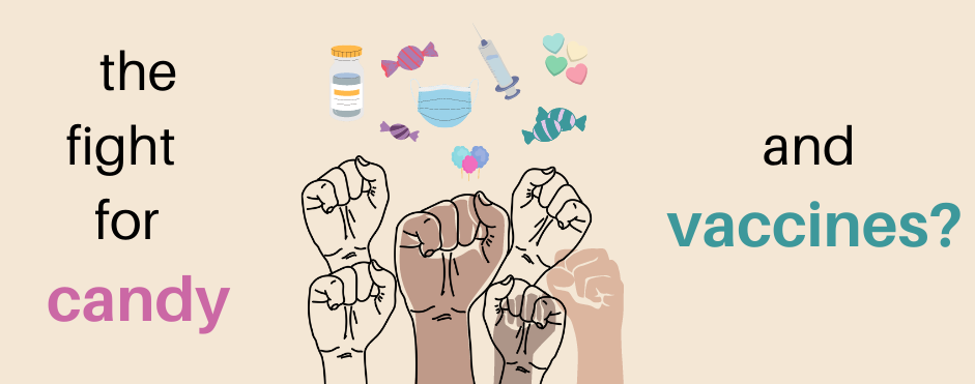Author: Sukkriti Nath, Graphics: Nina Tagliabue
The BRB Bottomline
Vaccine nationalization and hoarding, resulting in vaccine inequity, means slower recovery and a widened socio-economic gap for less economically developed countries.
According to the World Economic Forum, the economic impacts of COVID-19 may last all the way until 2024 in low-income countries. This, as we are now learning, has a lot to do with vaccine inequity between the low-and high-income countries. For comparison, according to The New York Times’ Covid Vaccination Tracker, the COVID-19 vaccination rate was just over 1 percent in low-income countries as of August 12. Yet, in high-income countries, over 50 per cent of the population had been vaccinated. Hence, vaccine inequity in today’s world could not only prolong the pandemic, but also be the cause of long-term, multifold socio-economic issues in low-income countries.
What is vaccine inequity?
For a second, imagine you’re in second grade and the teacher has brought candy to class (Yay!). But, she only brings enough for half the class. And this half is made up of the bougie, high-income kids in class. You want the tasty candy, but you know that you can’t have it. Except – this candy can also save your life.
This is vaccine inequity.
The gap is even more pronounced than one could possibly imagine. UN News reports that as of September 2021, the first-dose vaccination rate in the UK was about 71 percent while in the US, it was roughly 65 percent. Now in comparison, the first-dose vaccination rate in Papua New Guinea is 1.15 percent, while in the Democratic Republic of the Congo it is merely 0.09 percent.
Indeed, no one expected the vaccine gap between the global rich and poor to be this stark and this far into the pandemic. However, as we near the end of 2021 now – a variety of factors – most prominently “vaccine nationalism” continue to deepen the inequitable distribution of vaccines.
What is vaccine nationalism?
Now, kids talk; kids hang out, and if at school one student gets sick, soon the entire school would have taken to their bed. Let’s go back to the amazing teacher who brought life-saving candy for her class—for her class, and her class only. This candy would then, sadly, be of no use. The candy is only of use if it’s available for everyone. No one likes the teacher hoarding the candy. That’s vaccine nationalism.
According to Aljazeera, vaccine nationalism occurs when governments sign agreements with pharmaceutical manufacturers to supply their own populations with vaccines ahead of them becoming available for other countries. The World Health Organisation fears that such unilateral deals with wealthy countries will make the vaccines inaccessible to those in some of the poorest parts of the world.
Where do we go from here?
One thing is clear from this: everyone deserves candy. Another thing that is clear is that everyone doesn’t have access to candy. As in the words of the Chief Economist of the National Retail Federation, or NRF, “Vaccination is the key to further economic recovery, reopening and rebuilding.”
The World Economic Forum argues that Inequitable distribution of vaccines can result in setting back the 2030 Agenda for Sustainable Development Goals, fuel additional waves of infections and suffering and deepen the socio-economic divide. Thus, policymakers worldwide need to prioritize the democratic and equitable distribution of vaccines in order to prevent a catastrophic, never-ending cycle of partial recovery. In summary, the lack of universal access to affordable vaccines in low-income countries is often a result of vaccine nationalism and vaccine hoarding. Efforts such as the UN Human Rights Council’s resolution for equitable relief from COVID-19 is a step in the right direction. Concrete, actionable policies – however – are the need of the hour: for better access to candies and vaccines.
Take-Home Points
- The fight for candies, and vaccines, is real – especially during the ongoing COVID-19 pandemic.
- One of the root causes of vaccine inequity is vaccine nationalism (or vaccine hoarding).
- Vaccine inequity can result in slower recovery from the pandemic and a widened socio-economic gap between the more and less economically developed countries.


Excellently articulated, enjoyed reading.